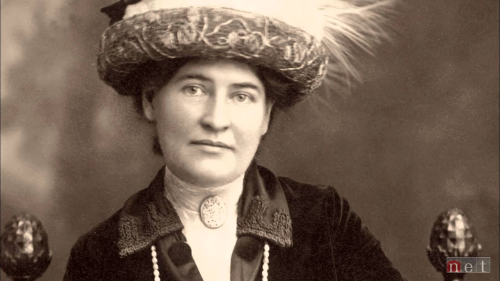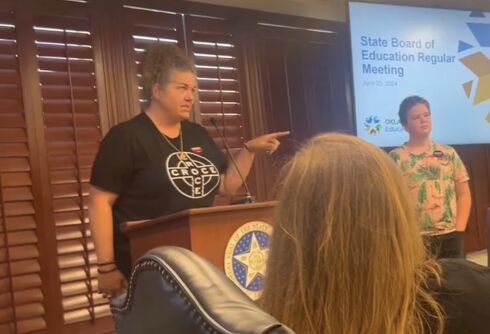House Speaker Kevin McCarthy (R-CA) unveiled the latest statue added to the U.S. Capitol yesterday, but neglected to mention that author Willa Cather had a decades-long relationship with another woman.
“As one of America’s greatest novelists, Willa Cather is a fitting addition to this gallery of great Americans,” McCarthy said at the unveiling ceremony in the National Statuary Hall. Every state is represented by two statues of famous residents throughout the Capitol complex; most are in the hall. Cather was chosen by Nebraska leaders to replace a statue of Julius Sterling, a newspaper editor and politician who supported slavery.
Related:
9 LGBTQ writers who have won the Pulitzer Prize (& a couple of honorable mentions)
We found 9 LGBTQ writers who have won Pulitzers. Are there more? Tell us!
McCarthy’s own history of supporting anti-LGBTQ+ legislation made him an ironic choice for the unveiling, held at the beginning of Pride Month. McCarthy recently voted against codifying same-sex marriage into law and has prioritized other bills that discriminate against the queer community.
Stay connected to your community
Connect with the issues and events that impact your community at home and beyond by subscribing to our newsletter.
The renowned author shared a deeply intimate and enduring romantic relationship with Edith Lewis in a testament to love and literary collaboration. The relationship between Cather and Lewis, her steadfast companion, began in the early 1900s and lasted until Cather’s death in 1947. Their bond transcended mere friendship and marked a significant aspect of Cather’s personal and professional life.
Lewis, a talented editor and writer in her own right, provided unwavering support to Cather, playing an integral role in shaping Cather’s literary career. Their shared passion for literature and the arts fostered an environment where both women thrived.
While the exact nature of their relationship is a subject of speculation, scholars and biographers have widely acknowledged the romantic and intimate aspect of Cather and Lewis’s partnership. Cather and Lewis lived together for nearly four decades, sharing a home and a life deeply intertwined.
“Nebraskans are lucky to call Cather one of their own,” McCarthy told the audience. “But ultimately her work belongs here. Because it is American to the core. Her authenticity, emotion, artistry, it spoke of Americans’ fundamental values.”

















